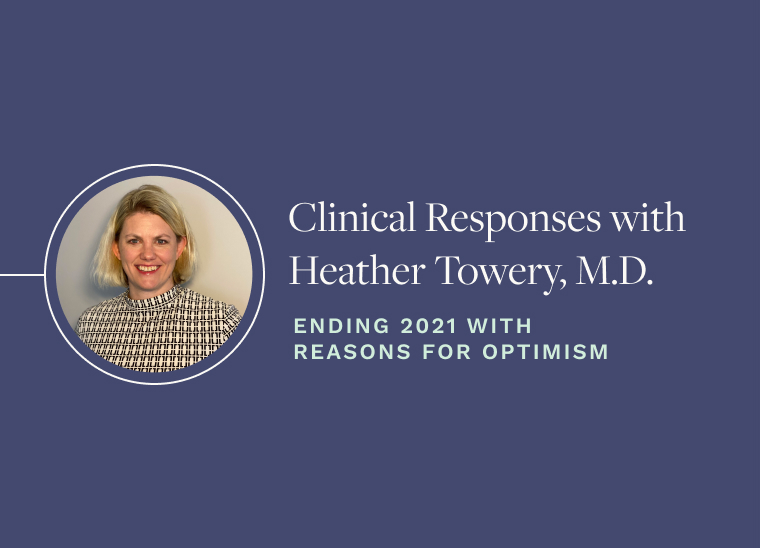As we close out 2021, we want to keep you updated on where things stand with COVID-19. Here, we’ll cover:
- The latest Omicron news
- The status of the OSHA ETS moving forward
- Reasons for optimism
OMICRON
There is no question that Omicron is highly transmissible and it is spreading fast. You may have heard recently about large outbreaks at colleges and universities and seen that daily positivity rates have risen significantly in only a few days in several cities across the United States. Research has shown Omicron spreads at multiples of the speed at which the Delta variant spreads. Given this, Omicron is poised to become the dominant variant worldwide, although Delta is still the most dominant variant in the U.S. Currently, the areas of the U.S. seeing the most severe rise in COVID-19 cases are the Great Lakes and Northeast regions.
The spike in cases in the New York City area prompted New York Governor Hochul to implement a mask requirement or proof of vaccination mandate for all indoor businesses and venues, effective December 13. The requirement will be enforced with fines and businesses will not be able to allow a mix of unvaccinated people who are wearing masks and vaccinated people who are not. Similar mask requirements have gone into effect in California (except for San Francisco).
It remains true that the unvaccinated are at the highest risk for contracting and experiencing severe disease, but Omicron is causing reinfections and breakthrough infections among the previously recovered and fully vaccinated and boosted. You should be taking precautions to keep your employees, friends, and families safe. While many of the symptoms of the Omicron may seem like a mild cold, if you have symptoms, get tested.
Additionally:
- Get vaccinated
- Get boosted
- If weather permits, enjoy time with others outdoors
- If possible, encourage employees to work from home through mid-January
- Maintain social distancing and if you can’t, wear a mask
- Wash your hands with soap and water for at least 20 seconds
Surges around the world are also impacting travel. Employees planning to travel outside the U.S. should stay up to date on the changing conditions and requirements related to COVID-19 at their destination.
OSHA ETS IS MOVING FORWARD
On December 17, the Sixth Court of Appeals lifted an injunction against the OSHA ETS regarding vaccine and testing rules that applies to businesses with at least 100 workers. According to the Department of Labor, OSHA will not issue fines for non-compliance with any of the requirements until January 10, 2022, and it will not issue fines for the testing requirements until Feb 9, 2022 “so long as an employer is exercising reasonable, good faith efforts to come into compliance with the standard.”
You can find a reminder of the OSHA ETS requirements for employers here: COVID-19 Vaccination and Testing ETS
OPTIMISM
While the impact COVID-19 has had on family, friends, and colleagues is still hard to comprehend, we have reasons to be optimistic. We have learned a lot about a novel virus in a little under two years. From the early days of contact tracing and treating the virus while still learning about it, we now have vaccines, monoclonal antibodies, antiviral pills, and widespread testing. Further, telehealth has enabled clinicians to safely assess, treat, and monitor patients throughout the pandemic, whether for COVID-19 or other physical and mental health matters. While the likely outcome of COVID-19 is that it will be declared endemic at some point, scientists and clinicians continue to make great strides and, because of all their hard work, brighter days are on the horizon.
Authored by Heather Towery, M.D., VP Clinical Strategy and Enterprise Partnerships at Eden Health
Disclaimer: This information is based on current resources available and is subject to change. This document and its contents are provided for informational purposes only, and not intended to be, and should not be understood or treated as, a substitute for professional medical advice around COVID-19, its risks or symptoms, or to take the place of any local, state and national laws and guidelines around COVID-19. Always seek the advice of a physician or other qualified health provider with any questions you may have regarding a medical condition.





